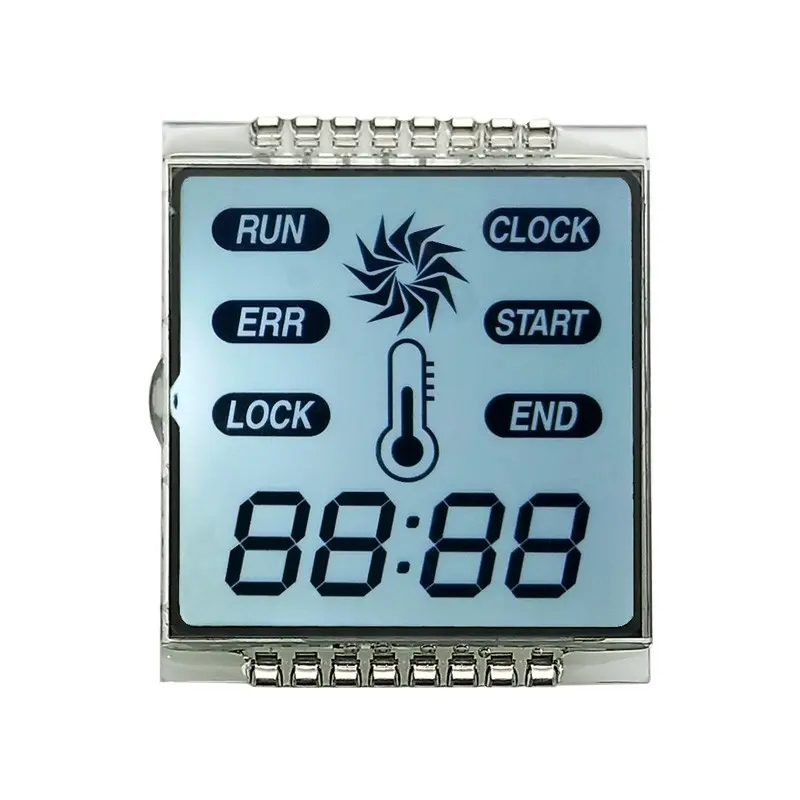
This guide helps you navigate the world of 7 inch TFT display manufacturers, outlining key considerations for selecting a supplier that meets your specific needs. We'll explore different display types, crucial specifications, and factors to consider for a successful partnership. Learn how to choose the best 7 inch TFT display for your project.
A Thin-Film Transistor (TFT) display is a type of liquid crystal display (LCD) that uses TFTs to individually control each pixel. This results in sharper images and faster response times compared to other LCD technologies. 7 inch TFT displays are commonly used in a variety of applications, from portable devices to industrial instrumentation.
Several variations exist within the 7 inch TFT display market. Key differences often lie in resolution (e.g., 800x480, 1024x600), viewing angle, backlight type (LED backlights are common), and touch screen capabilities (resistive, capacitive). Choosing the right type depends heavily on the intended application. For example, a device requiring high accuracy might necessitate a higher resolution display with a precise touch screen.
Resolution (measured in pixels, e.g., 800x480) determines the sharpness and clarity of the image. Higher resolution generally leads to better image quality, but also impacts power consumption and cost. Pixel density (pixels per inch, PPI) is another crucial metric related to image sharpness.
Brightness (measured in cd/m2) indicates how bright the display is, essential for visibility in different lighting conditions. Contrast ratio describes the difference between the brightest and darkest colors displayed, impacting the richness and depth of the image. These are crucial considerations, especially for outdoor applications.
The viewing angle determines how much the image quality degrades when viewed from an angle. Wider viewing angles are desirable for applications where the display might be viewed from multiple positions.
Response time refers to how quickly the pixels change color. Faster response times are important for applications involving moving images or videos to avoid motion blur.
If your application requires a touchscreen, choose between resistive and capacitive touch technologies. Resistive touchscreens are more durable but less responsive, whereas capacitive touchscreens offer greater accuracy and responsiveness.
Choosing the right 7 inch TFT display manufacturer is vital for the success of your project. Consider these factors:
Research potential manufacturers, looking for reviews and testimonials to gauge their reputation and reliability. Look for a track record of successful projects and customer satisfaction.
Ensure the manufacturer can meet your production volume requirements and provide acceptable lead times.
A rigorous quality control process is essential to guarantee consistent product quality. Ask about their testing procedures and certifications.
Determine if the manufacturer offers customization options to tailor the display to your specific needs, such as custom resolutions or integrated features.
Compare prices and payment terms from different manufacturers to find the best value for your money.
While I cannot endorse specific manufacturers, thorough online research will reveal several reputable options. Remember to meticulously review specifications and customer feedback before making a decision. Finding a supplier that offers strong customer support is also critical.
For a comprehensive range of display solutions, including 7 inch TFT displays, you might consider exploring reputable suppliers in your region or globally.
One such supplier is Dalian Eastern Display Co., Ltd. (https://www.ed-lcd.com/), a company known for its commitment to quality and innovation.
Choosing the right 7 inch TFT display manufacturer requires careful consideration of various factors. This guide helps you understand the key specifications, selection criteria, and process involved. By following these steps, you can find a reliable partner to deliver the high-quality 7 inch TFT display needed for your project.












